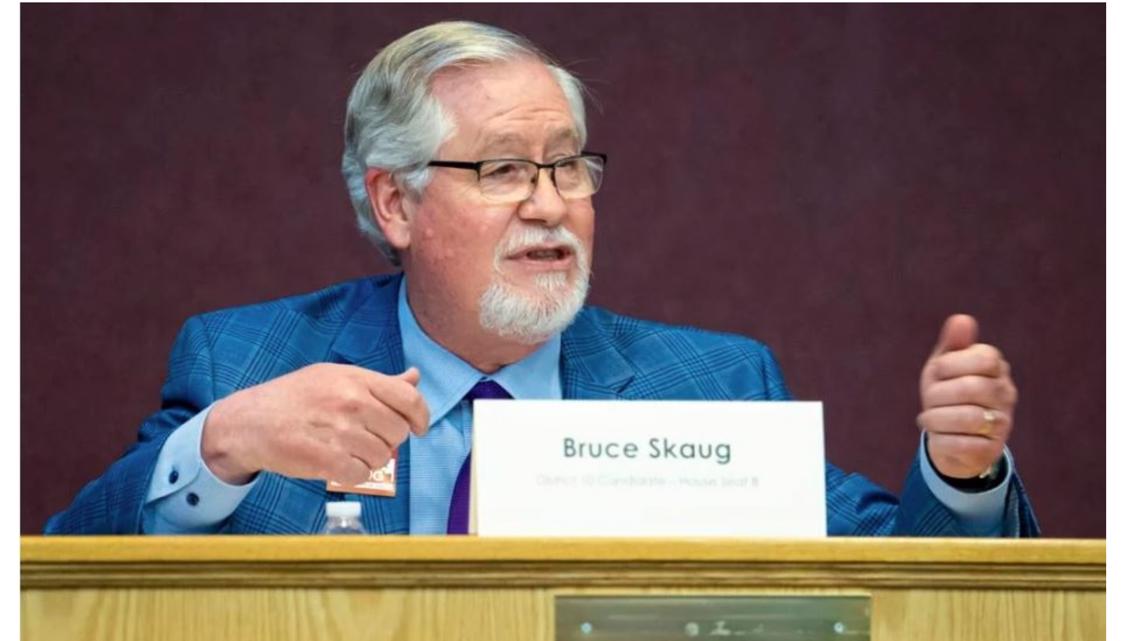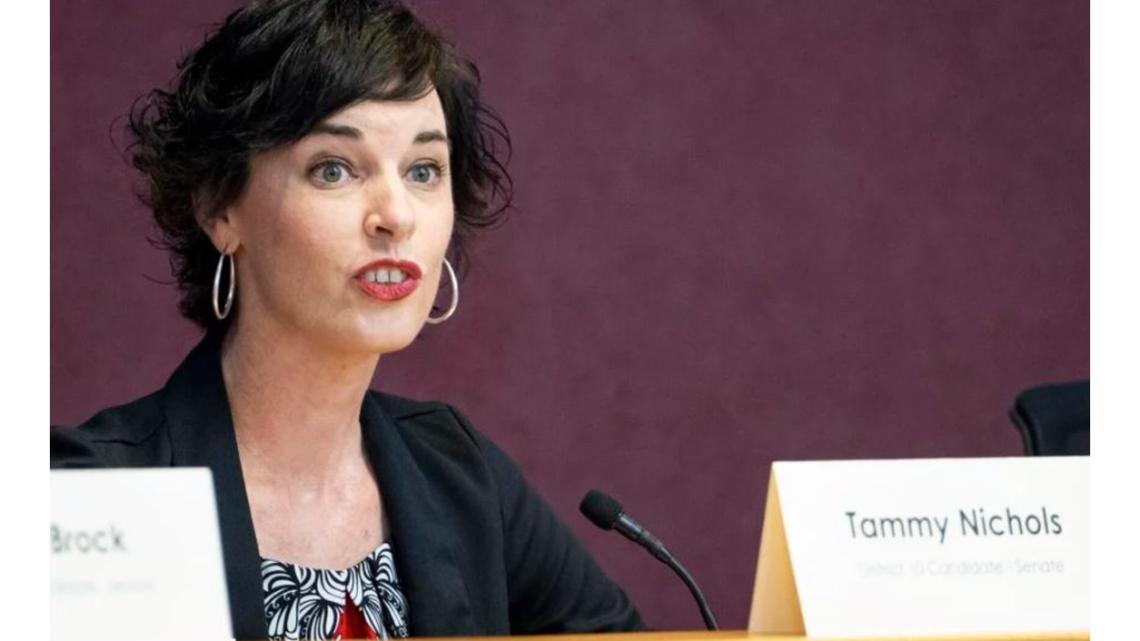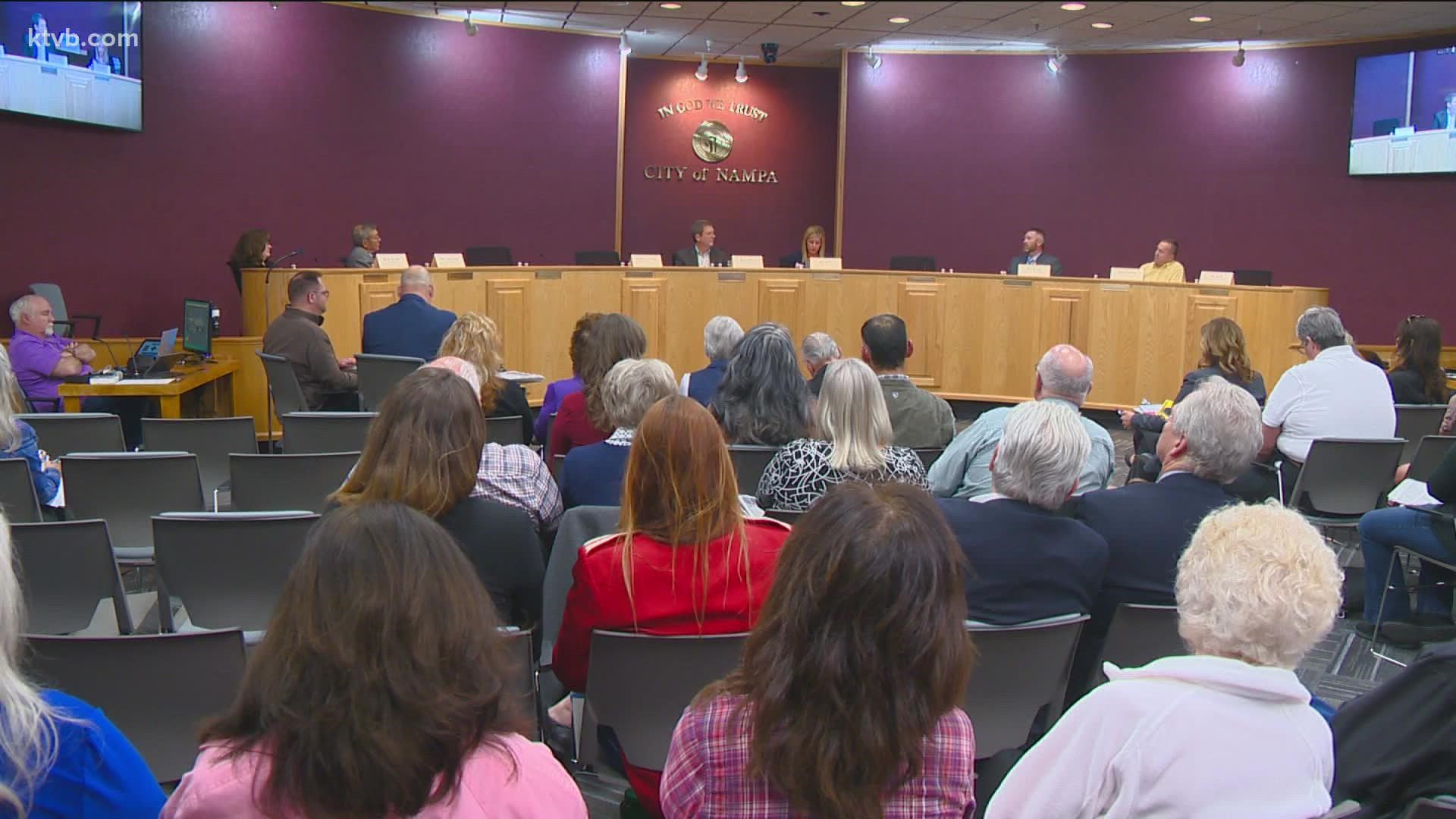NAMPA, Idaho — This article originally appeared in the Idaho Press.
Republican House and Senate candidates for districts in Canyon County gathered in Nampa Tuesday evening to participate in a forum moderated by the Idaho Press.
Topics discussed included local option taxes, property taxes, and who won the 2020 presidential election — notably, the majority of participants in all races said it was Donald Trump, although there is no evidence to support this claim.
Candidates had the opportunity to introduce themselves and answer questions, including some lightning-round questions where they were asked to provide one-word or brief answers.
Candidates were grouped by district and race; candidates from districts 10, 12, and 13 were invited to participate. Those who did not attend were Rachel Hazelip, candidate for District 10, Seat A; Coral Kenagy, a candidate for District 10, Seat B; Jana Warner, candidate for District 12, Seat B; and Tara Barling, candidate for District 13, Seat B.
The night began with candidates for Canyon County elected positions: clerk, District 2 commissioner, and District 3 commissioner.
CANDIDATES SKEPTICAL ON USEFULNESS OF LOCAL OPTION TAX
Candidates were asked whether they would support the use of a local option tax, which is defined as a tax that a municipality votes to collect for something that they need such as road improvements. Currently, only Idaho resort towns with populations under 10,000 are allowed to ask their voters to impose local sales tax.
Most candidates expressed skepticism on the usefulness of such a tax and whether local governments should be entrusted with deciding to implement one.
“All it is is a new tax,” said Mike Moyle, a House incumbent who is running for District 10, Seat A. “It’s increasing the sales tax,” he said, adding that municipalities could use impact fees to “push the cost of growth toward new people moving here and not tax the existing citizens here.”
Some candidates said they trust local government, but believe municipalities should choose a different approach to deal with taxes.
“I’m also not a big fan of that, even though I do trust cities to run their own budgets and have that option,” said Beverlee Furner, a candidate for representative of District 10, Seat B. She worried it would encourage people to spend their money elsewhere, as already happens with Oregon because that state has no sales tax.
The sentiment that a local option tax would drive people to spend elsewhere was echoed by Tammy Nichols, a House representative who is running for District 10 senator.
“I believe that it does incentivize other areas and drives business away ... and that they don’t stay where we want businesses to be because they can pay less tax.”
Incumbent District 10 Rep. Bruce Skaug said, “I do trust local government; I was one right here. However, I’m always going to make it more difficult to raise taxes, and this is another way of raising taxes.”


Nampa resident Sebastian Griffin, who is running for a House seat in District 12, agreed that while he trusts Nampa to decide how to govern itself, he considers the optional tax “just another burden that we’re putting on Nampa citizens.”
Jeff Cornilles, who is also running for representative of District 12, Seat A, was the only candidate present who said he might support it.
“It’s been said that local government is the purest form of government,” Cornilles said. “And I know Nampa; I know how they manage money, which is really well. I would trust them with that. But I don’t know if that’s the simple answer for every community.”
NUMEROUS PROPOSALS TO TACKLE PROPERTY TAXES
The moderators asked all candidates to comment on how they would reduce property taxes, an issue that is top of mind for many residents.
Some candidates advocated closing the gap between residential property taxes and commercial property taxes.
“Today, the tax shift is on residential because commercial properties aren’t increasing in value at the rate that residential are,” said Jeff Agenbroad, a current representative and Senate candidate for District 13. “But I can remember back in 2007 when … residential got a tax cut and the burden fell on commercial. So we need to look for a solution that survives all economies.”
Allowing impact fees to be used to pay for schools could lower property taxes by 30% in certain areas, said Scott Brock, Senate candidate for District 10.
“That will take away the bonding need that comes to residents,” Brock said.
There was a proposed House bill that would have eliminated primary residence property tax in favor of a 2% sales tax increase, said Ben Adams, a House representative who is running for District 12 Senate. Adams did not completely agree with the bill, but he liked the idea of eliminating primary residence property tax, he said.
“It would cost $717 million to eliminate primary residence property tax,” he said. “That’s what I want … I want to focus on how we can take … what would be government growth, and turn it into tax cuts.”
Candidates also discussed raising the homeowner’s exemption.
“The immediate relief would be revisiting the homeowner’s exemption as well as revisiting the circuit breaker,” said Kenny Wroten, candidate for representative of District 13, Seat B, referring to a program that offsets the cost of property taxes for Idahoans who are elderly or have disabilities.
Brian Lenney, candidate for senator of District 13, agreed, and added that senior citizens should not have to pay property taxes.
“There’s a lot we could be doing for senior citizens,” Lenney said. “I think if you own your home, you shouldn’t have to be paying for it the rest of your life. I mean, in a perfect world, property taxes are immoral and we should get rid of them. I don’t know if that’s realistic though because I haven’t really seen it happen.”
Roger Hunt, candidate for representative of District 13, Seat B, said he has seen his property taxes triple in the decades he has owned his home, and supports the idea of decreasing property taxes for seniors.
“I believe that it’s un-American that you have to pay rent to the government to live in your house that you supposedly own,” Hunt said, suggesting that perhaps when a homeowner turns 65, they would no longer have to pay property tax.
Jaron Crane, candidate for representative of District 12, Seat B, said he recently learned about California’s Proposition 13, which in his understanding, limits increases in property taxes to 1% per year unless the property changes ownership at which time its value is reassessed.
“That’s a very interesting idea to me,” Crane said. A lot of people he has met have said, “’Hey, that idea should be discussed over in Boise,’” he said.
Thomas Netzley, Senate candidate for District 12, said he would like to see property taxes eliminated for everyone.
“I believe in sales tax … no income tax, no property taxes,” Netzley said. “I think you should be taxed on the money that you spend.”
CANDIDATES: TRUMP WON THE 2020 ELECTION
When asked for a one-word answer on which presidential candidate won the 2020 election, candidates generally answered “Trump.”
Skaug initially answered “not sure,” but when reminded that the answer was supposed to be a single word, said “Trump.”
Other answers included “cheating” from Netzley, and “China” from Hunt.


Incumbent Chris Yamamoto and newcomer Sandy Bowden are running for Canyon County clerk. Both said they believe Trump actually won the 2020 election.
A follow-up question asked the clerk candidates whether they think Idaho elections are safe. Bowden believes they are not, and suggested “cleaning up voter rolls” and returning to paper ballots.
“Voting machines are vulnerable and they will always be vulnerable because they’re a machine and anybody can hack it if they know how,” she said. She added that if ballot drop boxes are to be used, they should “be on 24-hour surveillance.”
Despite believing that Trump won the election, Yamamoto does not believe that Idaho elections are not safe.
“In the state of Idaho we have good laws,” Yamamoto said. “We have secure elections. Were there some issues in other states in my view? Absolutely there was. Some of it’s already been proven. In Canyon County, we have had no issues whatsoever.”
In total, of the 19 candidates who attended the forum, only three said President Joe Biden won the election, and all included caveats.
“As Mr. Stalin once said, it doesn’t matter who votes, it matters who counts the votes,” said Zach Brooks, candidate for District 3 commissioner. When asked to provide a one-word answer, Brooks said, “Biden.”
Victor Holiday, another candidate for District 3 commissioner seemed to give the win to both Trump and Biden.
“I like to say Trump, but Biden won, too,” Holiday said.
Brad Holton, Greenleaf mayor and candidate for District 2 commissioner said, “I’ll go with Mr. Holiday’s answer.” Keri White, the incumbent candidate for the district, said “Trump.”
Incumbent District 3 Commissioner Pam White was not in attendance at the event.
This article originally appeared in the Idaho Press. Read more at IdahoPress.com
Watch more Idaho politics:
See all of our latest political coverage in our YouTube playlist:

